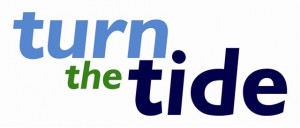This past summer, thanks to a reference from one of my favorite blogs, Scouting NY, I got my hands on an old and interesting book entitled Sailing Around the World Alone. For those of you who grew up in this area of the country, you may have read this book as a student. But, for others of us the book is probably new, at least it was to me. In short, it was published in 1899 and is the memoir of Captain Slocum’s trip sailing around the world alone (he was the first to do so). It’s an extremely entertaining read, however it was the last page that really gripped me. In it he states “To succeed, however, in anything at all, one should go understandingly about his work and be prepared for every emergency.”. I was moved by this statement, and, naturally, my thoughts turned towards my own profession. The part that stood out to me, and what I want to talk to you about today is “go understandingly about his work”. I want to discuss what that means for me within the field of UX Design, and what I think it should mean to you.
As UXers, we are in an ever evolving profession that, although young, has begun to mature over the past couple of years. Even though we have reached a level maturity, there are many of us that don’t know the whys behind our process, the activities we do, and the outputs we create. Thus, instead of trying to understand the whys, people focus solely on the hows. When I say whys, I’m talking about the reasons why we have the phases of the design process or the reasons why we talk to users. These are in contrast to the hows which are the ways that we go through our process (i.e. persona creation, wireframing, sketching) and the ways we talk to users (contextual inquiry, ethnographic study, user interviews). These two items, hows and whys, although living along the same plane, are in sharp contrast to each other. 
To me, the people that only concentrate on the hows are not going understandably about their work. Instead, they are go absentmindedly about their work. They are aware of what they are doing and are probably very good at it, but they do not have an understanding of why they use one method vs another, or why they use one part of the process vs the other. Thus, the problem with UX professionals only focusing on the hows and not the whys is that doing so allows us to go only so far in our profession. By relying on the hows, we will not find ultimate success in both our own individual careers as well as within our field as a whole. Further, how can we sell the idea of UX to organization executives if we don’t know the whys behind our work? If we cannot sell our work then how do we advance in our individual professions as well as as a profession in general? If you are unaware of why the UX process is what it is and/or why the methods we use were put into practice, you will find a hard time with long term happiness, and ultimately long term success, in this field. And to make matters worse UX, on the whole, suffers. (Note: I’ve written about these ideas before. See Getting to the X in UX & When Did We Forget About Behavior for more thoughts).
The solution, if you find yourself in the hows side of the coin, is to reach out and investigate the whys. Use your resources, both electronic and human, to research why you have the process you do. Make it a point to gain knowledge on why certain materials and activities exist and should be used versus others. This, in short, is the only way to begin to turn the tide in your direction. The hard part is that it involves not only a desire to be more successful in your field, but a genuine caring for your career and profession. 
By figuring out and understanding the whys, you are, as Captain Slocum put it, “prepared for every emergency”, and ultimately you will be on the path to individual professional success. You’ll make huge strides in not only being the “wireframer” but in being a holistic professional UX designer. But, perhaps more importantly, you will see more success in your own work, and ultimately within the UX world. Thus, let’s all take a lesson from Captain Slocum, and “go understandably about” our work in order to progress not only ourselves, but the profession we love.